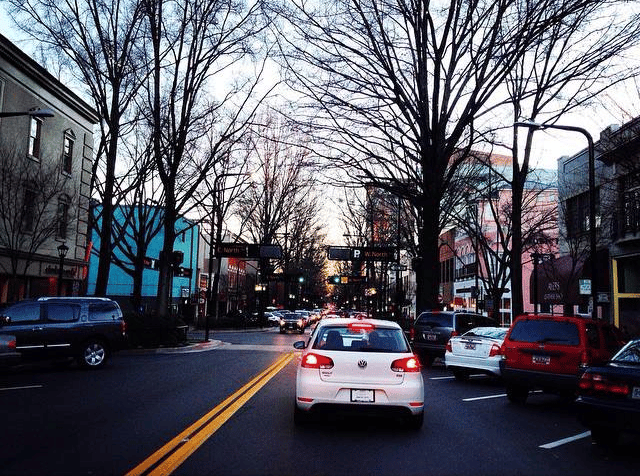
Can’t find a parking space? Ford’s new project might help.
Carlee Colvard, Assistant Editor
Photo courtesy of Carlee Colvard.
It’s 8:50 a.m. You’re driving to school for your 9 a.m. class, and the last thing you have time for is circling the parking lot searching for an open space.
Whether you’re a commuter running late for class or a resident of North Greenville University searching for a parking spot close to your dorm, Ford Motor Company and Georgia Tech are working together to create a device with you in mind.
The companies are working on a device that not only tells you how to get from one place to another but also where you can find an available parking space.
The project, called “Parking Spotter,” involves creating a system inside a vehicle that connects to a parking database to signal where an open spot can be found.
The goal is to reduce vehicle carbon emissions. Searching for a parking space can create between 20 to 30 percent of a vehicle’s carbon emissions.
One of the goals for Ford’s company-wide targets states, “Reducing greenhouse gas emissions from our manufacturing facilities by 30 percent per vehicle produced from 2010 to 2025.”
Ford’s goal is to use the ultrasonic sensors found in their vehicles that have Ford’s Parking Assist to identify open parking spots. With the help of a GPS, the location of the parking space is sent to a cloud data center that organizes the information to find available parking in that location.
The system would benefit NGU students going downtown or trying to find a parking space on campus.
Sergeant Charles Snook, NGU campus security officer, said, “Parking at the university is very limited and for faculty, staff, students and visitors finding parking is sometimes challenging. When you�re rushing to get to class or chapel, it is very frustrating to a number of our patrons.”
Not only would the parking system save time, but it would also promote safety for students who are likely be in a hurry to find a spot.
“Student life makes it very difficult for people to get up and so they�re rushing to get to class and knowing where to go would give them a little bit more time so they could be safer getting there rather than rushing and circling around to get there,” said Snook.
Now you can circle parking lots in hope that Ford’s idea might actually come together to help you find the closest parking space.

